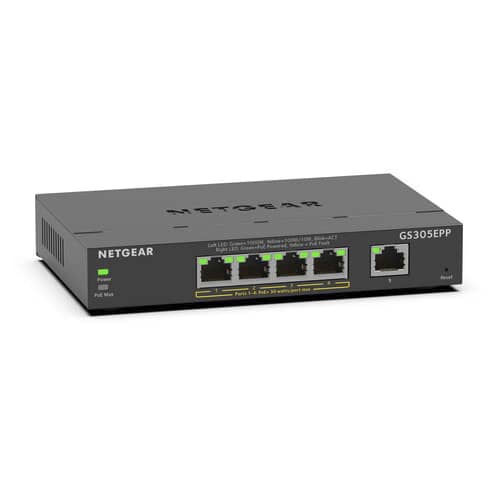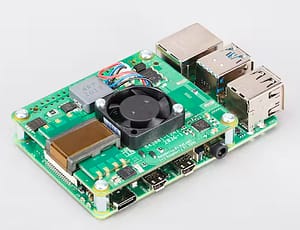I decided to change the path of the Raspberry Pi 4B to Ansible. I am looking at getting a Turing Pi 2. So I want to start learning Ansible.
Reinstalled Raspberry Pi 64-bit
cat /etc/os-release
PRETTY_NAME=”Debian GNU/Linux 11 (bullseye)”
NAME=”Debian GNU/Linux”
VERSION_ID=”11″
VERSION=”11 (bullseye)”
VERSION_CODENAME=bullseye
ID=debian
HOME_URL=”https://www.debian.org/”
SUPPORT_URL=”https://www.debian.org/support”
BUG_REPORT_URL=”https://bugs.debian.org/”
Operating System: Debian GNU/Linux 11 (bullseye)
Kernel: Linux 5.15.61-v8+
Architecture: arm64
python3 -V: Python 3.9.2
/etc/dhcpcd.conf
1.) changed slaac private to slaac hardware: forces IPv6 to use mac address
2.) Added static domain_name_servers x.x.x.x: adds my DNS server IP
Created ssh_keygen private and public key for Windows 10. Copied the public key to Raspberry Pi .ssh folder as authorized_key. Ansible needs to be able to log in without a password being typed in. This is a test for Ansible and future project for the Turing Pi 2 device with 4 Compute modules.
Installing Ansible
added deb http://ppa.launchpad.net/ansible/ansible/ubuntu focal main to /etc/apt/sources.list
sudo apt-key adv –keyserver keyserver.ubuntu.com –recv-keys 93C4A3FD7BB9C367
sudo apt update
sudo apt install ansible
ansible –version
ansible [core 2.12.9]
config file = /etc/ansible/ansible.cfg
configured module search path = [‘/home/michael/.ansible/plugins/modules’, ‘/usr/share/ansible/plugins/modules’]
ansible python module location = /usr/lib/python3/dist-packages/ansible
ansible collection location = /home/michael/.ansible/collections:/usr/share/ansible/collections
executable location = /usr/bin/ansible
python version = 3.9.2 (default, Feb 28 2021, 17:03:44) [GCC 10.2.1 20210110]
jinja version = 2.11.3
libyaml = True
ansible -i /etc/ansible/hosts servers -m ping -u xxxxxxx
raspberrypi.xxxxxxx.xxx | SUCCESS => {
“ansible_facts”: {
“discovered_interpreter_python”: “/usr/bin/python3”
},
“changed”: false,
“ping”: “pong”
ansible -i /etc/ansible/hosts servers -a “free -h” -u xxxxxxx
raspberrypi.xxxxxxx.xxx | CHANGED | rc=0 >>
total used free shared buff/cache available
Mem: 7.6Gi 338Mi 6.6Gi 34Mi 669Mi 7.1Gi
Swap: 99Mi 0B 99Mi
ansible -i /etc/ansible/hosts servers -a “df -h” -u xxxxxxx
raspberrypi.xxxxxxx.xxx | CHANGED | rc=0 >>
Filesystem Size Used Avail Use% Mounted on
/dev/root 115G 4.0G 106G 4% /
devtmpfs 3.7G 0 3.7G 0% /dev
tmpfs 3.9G 124K 3.9G 1% /dev/shm
tmpfs 1.6G 1.2M 1.6G 1% /run
tmpfs 5.0M 4.0K 5.0M 1% /run/lock
/dev/mmcblk0p1 255M 31M 225M 12% /boot
tmpfs 782M 20K 782M 1% /run/user/1000
Networking
The PoE+ HAT implements the 802.3at standard. When used with a compatible switch or injector this means it can deliver up to 25W, as you can see from this comparison table.|
A better diode rectifier: What else has changed? To reduce heat dissipation we replaced the diode rectifier with an “ideal diode” rectifier, in the form of a Microchip PD70224ILQ device.
| PoE HAT | PoE+ HAT | |
| Standards supported | 802.3af | 802.3af, 802.3at |
| Output voltage | 5V | 5V |
| Maximum output current | 2.5A | 5A |
| Maximum power | 15.4W | 25.5W |
| Fan | Yes | Yes |
| Current sense | No | Yes |
| Transformer design | Wire-wound | Planar |
| PCB | 4 layers, 2oz copper | 4 layers, 2oz copper |
| Price | $20 | $20 |
| Compatible with | Raspberry Pi 3B+, 4B | Raspberry Pi 3B+, 4B |
My Fortinet 60E firewall does DHCP and DNS. It is fully IPv6 configured, every port as IPv4 and IPv6 networking. So the next logical step is add a POE switch to power the Raspberry PI 4B devices. I am looking at the POE+ Hat that needs 25.5W per Pi. So I need a decent POE+ switch. POE supports 15.4W. I didn’t get POE on the 60E because I only have one Wireless Access Point. I might add a second one to the house. So it wasn’t worth the $800 cost. I put POE injectors on that are designed for the WAP.
NETGEAR 5 Port PoE Gigabit Ethernet Plus Switch (GS305EPP) – with 4 x PoE+ @ 120W, Desktop or Wall Mount is a decent 4 port switch to handle 4 RPi 4B 8GB modules. Each port of this switch is 30W. $107 from Amazon. I did consider getting a larger POE+ switch but the cost made it not worth it. Cheaper to add more of them in the future tied to the current gigabit switch.

